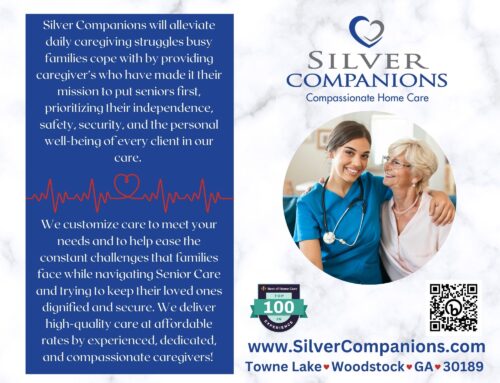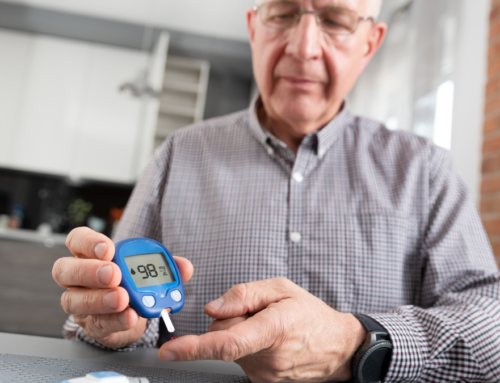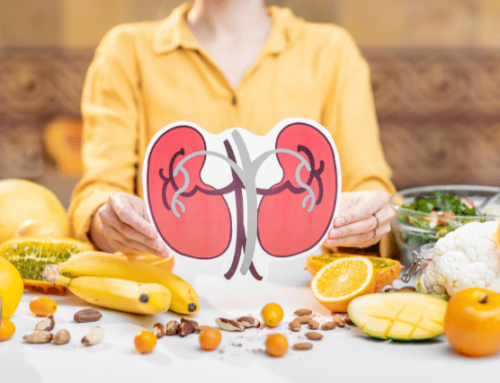
How to Avoid the Dangers of High Blood Pressure in Seniors
Worrying about high blood pressure is one thing, but when it’s your elderly loved one who is dealing with hypertension, that’s another story. Hypertension can lead to some very dangerous health complications in seniors, so it’s important to be aware of the risks and take steps to help keep blood pressure under control. Read on for the dangers of high blood pressure in seniors and tips on how to safeguard your loved ones against this condition.
High blood pressure and why it is dangerous for seniors
High blood pressure, also known as hypertension, is a condition in which the force of blood against artery walls is too high. This increased force can damage the arteries, heart, and other organs in the body. Seniors are more likely to have high blood pressure because as we age, our blood vessels become less flexible and stiffer, making it more difficult for blood to flow through them.
High blood pressure is especially dangerous for seniors because it can lead to a number of health complications, such as heart disease, stroke, and kidney failure. In fact, according to the Centers for Disease Control and Prevention (CDC), about 1 in 3 seniors die from cardiovascular disease each year—and high blood pressure is a major risk factor for these conditions.
Symptoms of high blood pressure in seniors
High blood pressure often has no symptoms, which is why it’s often called the “silent killer.” This makes it all the more dangerous, as seniors may not realize they have high blood pressure and, as a result, may not seek treatment. However, there are some signs and symptoms that seniors with hypertension may experience, such as headaches, dizziness, and difficulty breathing.
Reducing the risk of developing high blood pressure
While you can’t always prevent high blood pressure, there are some things seniors can do to lower their risk, including:
- Eating a healthy diet
Eating a healthy diet is the best way to nourish your body and mind as you age. It will help keep essential nutrients like protein, fat or carbohydrates in check while maintaining proper digestion with fiber-rich whole grains that are rich sources of vitamin B12 (a nutrient often lacking among those over 65). A nutritious meal plan can make you feel full much longer than sugary snacks typically do – which means you’ll be less tempted by junk food that may be laying around.
- Exercising regularly
The key to a long and healthy life is exercise.There are plenty of ways in which seniors can keep themselves active without compromising their health or ability level: Walk around the block each day; take the stairs instead of the elevator (or even just upstairs); go outside when the weather permits; go to the local YMCA or Senior Center and participate in an exercise program.
- Maintaining a healthy weight
Keep your blood pressure in check by maintaining a healthy weight. Research shows that the more pounds you lose, especially if they’re around waistline or lower, can reduce levels of high-risk factors like cholesterol and inflammation which are associated with heart disease risk.
On average adults should aim to eat about twenty five percent less than their body weight each day, depending on height, but this number will vary based on gender, physical activity level, etcetera. It’s best to rely on more than just one single number when planning meals and, instead, create an eating plan tailored specifically towards yourself.
- Quit smoking
Quitting smoking can have a significant effect on your blood pressure. Research has shown that middle-aged people who smoke 20 cigarettes per day are more likely to develop high blood pressure than those who smoke less, but even one cigarette increases chances by about 7%. If you’re over 65 and still lighting up, then this is something worth considering.
- Limit alcohol consumption
The old adage “drunkorexia” may be more accurate than we think. Senior citizens who over-consume alcohol can develop high blood pressure, which is why it’s important to limit intake and monitor how they feel after drinking certain amounts regularly or rapidly all at once.
- Manage stress levels
It has been shown that the sooner someone starts to take care of their mental health, the better chance they have at enjoying a long life. In order for seniors’ stress levels to remain low to avoid developing hypertension or other cardiovascular diseases, which can lead towards strokes and dementia, it’s important you find ways in everyday living just like these three easy tips:
1) Deal with any major Life Events
2) Practice Mindful Meditation
3) Take time out every day – even if just 15 minutes – to do something fun
- Talk to your doctor about treatments or medications to help lower blood pressure
There are several ways that you can take control of your blood pressure. If it’s high, talk to your doctor about medications and other treatments for lowering it. A common misconception is thinking we need medication only when our levels reach epic proportions; however, this isn’t true! You should always consult with your physician before starting any new treatment plan to see if they may have some helpful advice based on current conditions and. Don’t suffer in silence against something which could be solved easily through lifestyle changes like eating healthier foods, exercising regularly, and quitting smoking, which all add up – they really do make difference.
What to do if you have high blood pressure
If you’re a senior with high blood pressure, it’s important to work with your doctor to develop a treatment plan. This may include lifestyle changes, such as those listed above, as well as medication. In some cases, seniors may need to be hospitalized to get their blood pressure under control. But with proper treatment, seniors can often manage their hypertension and greatly reduce their risk of serious health complications fairly quickly.
Dangers of not treating high blood pressure
High blood pressure left untreated can be very dangerous. It increases the risk of heart attack, stroke, and kidney failure, all of which can significantly impact seniors’ quality of life and may even be fatal. Therefore, if you or a senior loved one is dealing with high blood pressure, it’s crucial to seek medical attention as soon as possible and to follow the treatment plan prescribed by a doctor. This will help seniors stay healthy and avoid potentially life-threatening complications.
Resources and support for seniors
If you or your loved one is struggling with high blood pressure, there are resources available to help. Some seniors may benefit from joining a support group or working with a therapist who specializes in hypertension. There are also numerous online resources, including health forums and informational websites, that can provide seniors with additional information about this condition and how best to manage it.
Key takeaways
High blood pressure is a serious condition that can lead to a number of health complications, especially in seniors. With that said, there are things seniors can do to lower their risk of developing hypertension, and there are treatments available to help seniors manage this condition. If you or your loved one has high blood pressure, it’s important to seek medical attention and work closely with your doctor to develop an appropriate treatment plan. With the right care, seniors can effectively manage their hypertension and enjoy a high quality of life. If you have a senior loved one who needs help with high blood pressure, Silver Companions is here to help. We offer in-home care services, and also have access to numerous resources that can be helpful for you or your loved one’s unique situation. For a no-cost consultation, where we’ll discuss your specific circumstances, give us a call today at (678) 494-8129 or email us at info@SilverCompanions.com.





